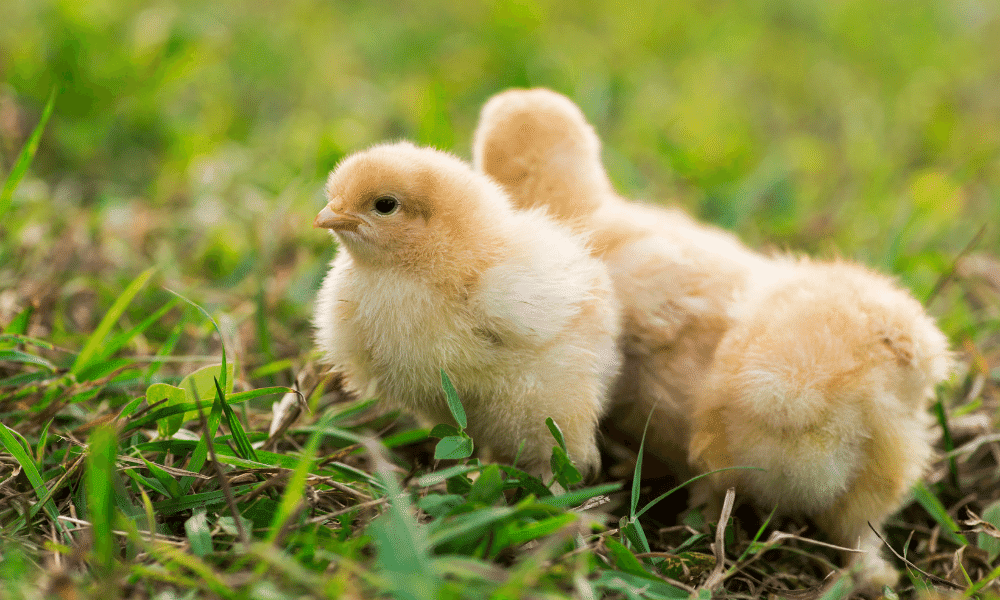Discover the Charm of the Comical Guinea Fowl: Reasons Why People Love Them
Guinea fowl, native to Africa, have been domesticated for centuries and are now found worldwide. Known for their distinctive calls and alert behavior, these birds are often used for pest control and as a natural alarm system due to their vocal responses to unfamiliar activity. Their unique appearance, characterized by vibrant plumage and a helmet-like structure on their heads, sets them apart from other poultry. Pictures of guinea fowl highlight their distinctive features, making them a recognizable and practical choice for farms and homesteads.
Origin and Characteristics of Guinea Fowl
Although sometimes mistakenly referred to as 'guinea fowl chicken,' guinea fowl are a completely different species from chickens. While both birds may share a role in farm environments, guinea fowl offer unique benefits like superior pest control and their distinctive alarm calls.
Guinea fowl have a compact and sturdy build, with a small head and a short, curved beak. Guinea fowl come in different sizes, depending on the breed and age of the birds. On average, adult guinea fowl can range from 16 to 28 inches in length and have a wingspan of about 30 to 36 inches. They typically weigh between 2.5 to 4 pounds, with males being slightly larger than females. Guinea fowl colors and plumage and feathers come in a variety of colors, including lavender, white, royal purple, and pearl. Their most recognizable feature is the bony helmet-like structure on their heads, which is more prominent in males. There are many guinea fowl images available online that show off their stunning variety of colors, from white to royal purple.
Guinea fowl have unique climate preferences compared to chickens. While chickens are versatile and can thrive in a range of climates, guinea fowl are naturally better suited to warmer, drier environments. Native to Africa, they have evolved to handle high temperatures and dry conditions with ease, making them a popular choice for those in hot regions. Their resilience to heat and resistance to diseases caused by high humidity give them an edge over chickens in these climates. However, guinea fowl are less equipped to handle cold weather and can be more vulnerable to frostbite. To keep them healthy and comfortable, it's crucial to provide proper shelter and protection from extreme weather, especially during the winter months.
Male Guinea Fowl
Male guinea fowl, often called cocks, have several characteristics that distinguish them from females, or hens. One of the most noticeable traits is the larger, more prominent helmet—the bony, horn-like structure on the top of their heads. This feature is often a little bigger and more pronounced in males than in females, making it a key way to tell them apart. Additionally, male guinea fowl tend to have larger wattles—the fleshy lobes that hang down on either side of their faces—which are typically more curved or pointed compared to the smaller, flatter wattles of the females.
Guinea fowl sounds: When it comes to behavior, male guinea fowl are generally more territorial and vocal than females. They are quick to sound their loud, repetitive calls when they sense potential danger, making them excellent alarm systems for your homestead. Their defensive nature means they will often confront perceived threats, especially during the mating season, to protect their flock.
During mating season, males can become more aggressive toward one another as they compete for mates. They often engage in confrontational displays like chasing, pecking, or wing-flapping to assert dominance. However, male guinea fowl can also be protective of their mates and the overall flock, showing their leadership in safeguarding the group.
Despite these differences, male guinea fowl share many of the same benefits as females, including their contribution to pest control and vigilance against predators. However, their vocal, protective nature makes them a unique and essential part of any flock.
Fun Fact: Natural Pest Control Experts:
Guinea fowl are known for their incredible ability to control pests, particularly ticks. A flock of guinea fowl can significantly reduce the tick population on your property, making them a popular choice for natural pest management.
Shelter Requirements for Guinea Fowl
What should the size of a guinea fowl coop be? When it comes to shelter, guinea fowl are relatively low-maintenance. They are adaptable birds that can thrive in a variety of environments. However, they do require protection from predators and the elements.
A simple and secure coop or shelter is essential for guinea fowl. It should provide enough space for them to move around comfortably and have roosting areas for resting. The coop should also have proper ventilation to prevent respiratory issues. Additionally, guinea fowl enjoy having access to outdoor space where they can forage and explore.
Popular Varieties of Guinea Fowl
Guinea fowl come in several varieties, each offering unique characteristics that appeal to homesteaders and farmers. While all guinea fowl share similar traits, such as their natural pest control abilities and loud calls, certain varieties stand out due to their size, appearance, and specific uses.
Helmeted Guinea Fowl
One of the most common and recognizable varieties is the helmeted guinea fowl (Numida meleagris). Named for the bony helmet-like structure on top of their heads, which is more pronounced in males, this variety is often what people picture when they think of guinea fowl. Helmeted guinea fowl are hardy birds known for their ability to adapt to various climates, although they thrive best in warm, dry environments. They are excellent for pest control, particularly effective at reducing tick populations on properties. Their striking appearance and distinctive helmet make them a popular choice for both ornamental and practical purposes on farms and homesteads.
French Guinea Fowl
The French guinea fowl is a larger, meatier variety compared to other types. Known for its flavorful and lean meat, this variety is highly prized for its culinary qualities, often found in gourmet markets and restaurants. French guinea fowl grow larger than helmeted varieties, making them an excellent dual-purpose bird for both pest control and meat production. Their size and calm demeanor make them a favorite among those raising guinea fowl for meat. In terms of care, they have similar needs to other varieties but may require slightly more feed to support their larger frame.
Royal Purple Guinea Fowl
For those who appreciate aesthetics as well as utility, the royal purple guinea fowl is a stunning choice. With deep, glossy plumage that shines in shades of purple, these birds add a decorative flair to any flock. Royal purple guinea fowl keets (baby guinea fowl) are often sought after by breeders due to their striking appearance as they mature. While their primary role remains pest control and noise deterrence, their beautiful plumage sets them apart in any farm setting.
White Guinea Fowl
Another visually distinct variety is the white guinea fowl. Known for their clean, bright white feathers, these birds stand out from their more colorful counterparts. They have the same behavioral traits as other guinea fowl—vocal, alert, and excellent at keeping pests at bay. White guinea fowl are often used for ornamental purposes but are equally valued for their eggs and pest control abilities.
These popular guinea fowl varieties each bring something unique to the table, whether you're looking for ornamental beauty, meat production, or practical farm benefits. Whether you're raising these birds for their eggs, guinea fowl meat, or pest control, adding one of these distinctive varieties to your flock can enhance the beauty and functionality of your homestead.
Why People Love Guinea Fowl ❤️
There are several reasons why people love guinea fowl and choose to keep them on their homesteads. Here are a few:
Pest Control: Guinea fowl are excellent at controlling pests such as ticks, mosquitoes, and other insects. They have a voracious appetite for bugs and can significantly reduce the pest population on your property.
Alarm System: Guinea fowls are known for their loud and distinctive calls. The guinea fowl noise act as a natural alarm system, alerting you to any potential threats or intruders on your property.
Unique Personalities: Guinea fowl have quirky and entertaining personalities. They are curious birds that can provide endless amusement with their antics and social interactions.
Low Maintenance: Compared to other poultry, guinea fowl are relatively low maintenance. They are hardy birds that can withstand various weather conditions and require minimal care.
There are several options for where to buy guinea fowl, and we highly recommend connecting with a reputable breeder. If you're looking to buy guinea fowl eggs, the Roobeez Poultry Marketplace offers specialized search tools, making it easy to find guinea fowl eggs for sale. By registering as a member of the Roobeez Poultry Directory, you can quickly locate nearby breeders and sources for guinea fowl eggs. The search is tailored to your location, so finding 'guinea fowl for sale near me' becomes effortless as you browse with relevant keywords.
Fun Fact: Expert Fliers
Unlike chickens, guinea fowl are excellent fliers and are known for their ability to take off quickly when threatened. Don’t be surprised if you see them roosting in trees at night!
Marketplace
You might also be interested in...

Shop for chickens, livestock or other farm goods

About Farm Expo Events

Sell Your Chicks and Eggs
Guinea Fowl for Predator Proofing Your Homestead
One of the significant advantages of keeping guinea fowl on your homestead is their ability to deter predators. Guinea fowl are highly vigilant and have a strong instinct to protect their flock. Their loud calls and aggressive behavior towards potential threats make them excellent guardians for your other poultry and livestock.
Different Colors of Guinea Fowl
Guinea fowl come in a range of colors, each with its unique beauty. Some of the most popular colors include lavender, white, royal purple, and pearl guinea fowl. These different color variations add visual interest to your flock and make them a stunning addition to your homestead. Lavender guinea fowl and royal purple guinea fowl are amongst the most popular colors of the breed.
Guinea Fowl Eggs and Egg Nutrition
The guinea fowl egg has a few unique characteristics compared to chicken eggs. Firstly, guinea fowl eggs are smaller in size, typically about two-thirds the size of a standard chicken egg. They have a harder shell, making them more durable and less prone to breakage.
Guinea fowl eggs are similar to chicken eggs in protein content, but they have a slightly higher fat content. Guinea fowl eggs also contain more cholesterol compared to chicken eggs. However, they are rich in essential vitamins and minerals, including vitamin A, vitamin B12, iron, and selenium. While guinea fowl eggs may have a slightly different nutritional profile, they can still be enjoyed as a nutritious and delicious alternative to chicken eggs.
Characteristics of Baby Guinea Chicks
A guinea fowl chick, also known as a keet, is an adorable and fascinating creature. They have a fluffy appearance and are covered in soft down feathers. Guinea fowl chicks (keets) are precocial, which means they are relatively independent from birth and can walk, eat, and drink shortly after hatching.
For those interested in specific colors, you can even find royal purple guinea fowl keets, which are a popular and striking variety.
Groups and Associations for Guinea Fowl
If you're interested in learning more about guinea fowl or connecting with other enthusiasts, there are several groups and associations dedicated to these birds. A notable organization is the Guinea Fowl International Association (GFIA), which offers valuable resources, information, and a community for guinea fowl owners and breeders.
Cost of Guinea Fowl
The cost of guinea fowl can vary depending on factors such as breed, age, and availability. On average, guinea fowl can range from $10 to $30 per bird. It's essential to consider the initial investment, ongoing care, and any additional equipment or supplies needed when budgeting for guinea fowl.
Common Problems with Guinea Fowl
While guinea fowl are relatively hardy birds, they can still face certain challenges. Some common problems include:
Guinea fowl noise - known for their loud calls, which can be disruptive to some people. It's important to consider your neighbors and local regulations before keeping guinea fowl.
Guinea fowl flighty behavior - guineas have a strong instinct to roam and explore. They can be flighty and may fly over fences or escape if not properly contained.
Vulnerability to Predators: While guinea fowl are excellent at predator control, they can still fall victim to predators themselves. When raising guinea fowl, it's crucial to provide them with a secure shelter and take necessary precautions to protect them.
Fun Fact: Strong Family Bonds
Guinea fowl are highly social birds and tend to stick together in groups. They form tight-knit flocks and will often call out if one of their group gets separated, showing strong flock loyalty.
Hatching Guinea Fowl Eggs: Incubation Techniques
If you're interested in hatching guinea fowl eggs, there are a few key differences to note compared to hatching chicken eggs. The incubation of guinea fowl eggs requires careful attention to temperature and humidity levels to ensure successful hatching. Guinea fowl eggs require a slightly higher humidity level during incubation, around 60-65%. The incubation period for guinea fowl eggs is approximately 26-28 days.
When incubating guinea fowl eggs, it's important to regularly monitor temperature and humidity levels. Turning the eggs several times a day is crucial for proper development, but this should stop several days before the eggs are expected to hatch to allow the chicks to position themselves for hatching. It's recommended to follow a reputable guide or seek advice from experienced breeders to ensure successful hatching.
Q & A: Popular Questions about the Guinea Fowl Bird
-
Guinea fowl are domesticated birds native to Africa, scientifically known as Numida meleagris. They are easily recognizable by their unique appearance, which includes spotted plumage and a helmet-like structure on their heads. Known for their loud, distinctive calls, guinea fowl are often used as natural pest controllers and for alerting farmers to potential predators or intruders. They thrive in warm, dry climates and are valued for their ability to eat a wide range of insects, including ticks. Guinea fowl are also raised for their eggs and meat, which is leaner than chicken.
-
Not usually! Guinea fowl aren’t known to be aggressive toward humans, but like most animals, they can become defensive if they feel threatened or their flock is in danger. They prefer to sound the alarm with their distinctive calls rather than resorting to physical aggression.
-
Yes, they do! Guinea fowl eggs are smaller than chicken eggs, with a tougher shell that makes them less prone to cracking. Their eggs are not only practical but a delightful addition to any farm.
-
Absolutely! Guinea fowl eggs are rich and flavorful, offering a taste similar to chicken eggs. They can be used in all the same culinary creations, from breakfast scrambles to delicious baked goods.
-
You can easily find guinea fowl for sale at local hatcheries, farm supply stores, or through online platforms specializing in poultry sales. The Roobeez Poultry Marketplace is a great place to start if you’re looking for breeders in your area.
-
That iconic bony helmet on their heads isn’t just for show! It’s believed to offer protection during territorial disputes and play a role in their mating rituals. It’s one of their most distinctive features and adds to their unique look.
-
Yes, guinea fowl can coexist with chickens, but introductions should be done gradually. Giving them plenty of space to prevent any squabbles is key to keeping the peace between the species.
Discover guinea fowl on Roobeez: Your Local Online Farm and Homestead Marketplace
Are you looking to add guinea fowl to your flock? Check out the Roobeez online marketplace, where you can find farms across the country offering guinea fowl and other livestock. Roobeez offers detailed information on poultry breeders, helping you connect with the perfect source for your needs!
You might also be interested in…





















Discover farmers markets near you with Roobeez! Explore local events, find seasonal and weekly markets, and shop fresh produce and handmade goods on our marketplace. Contribute to our growing directory by adding your favorite markets and community events. Supporting local has never been easier!